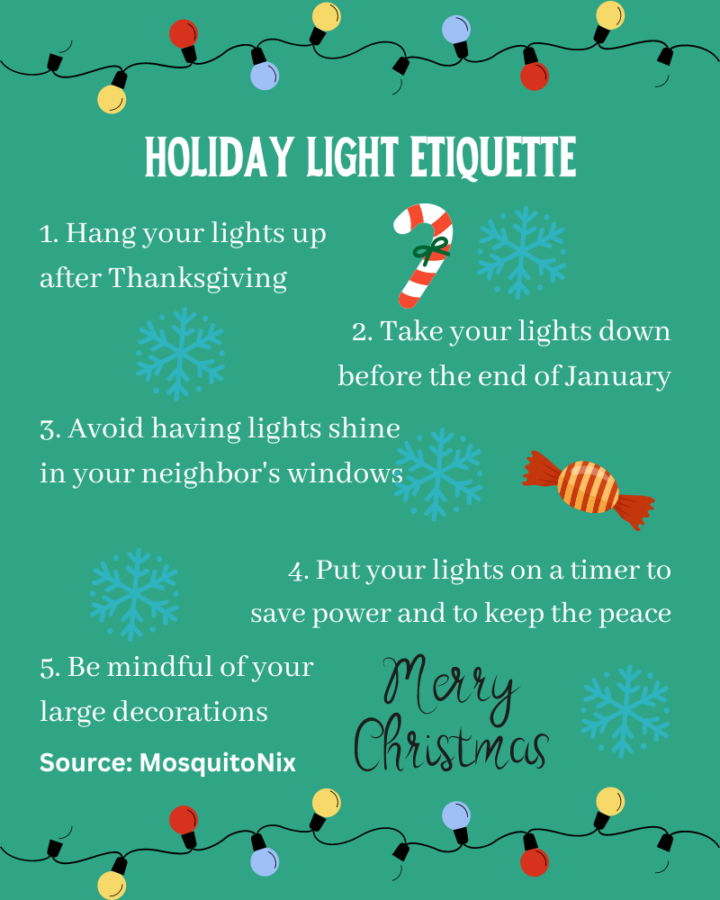Lights out
Holiday decorations need removal date
Information for proper holiday light etiquette.
January 9, 2023
Red and green string lights twinkle through the window as a neon Santa chuckles from his vigil on the porch, spreading holiday cheer, in the middle of January. While this is cheery in December, many will not be feeling the Christmas spirit this late.
When to take down Christmas decorations and definitively end the holiday season is a controversial topic. Many religions pose specific dates, such as Christianity, which thinks that it’s best to do so at the end of the 12 days of Christmas, Jan. 6. Other people just do it when they feel like it, like some unnamed neighbors who believe the right time is March. However, it would make sense to have a specific date for when people should take down their decorations. Maybe not nationally, but neighbors could discuss and agree on a vague date to appease everyone—preferably before the end of January.
It’s important to understand why people put up decorations in the first place. Unless people are just buying them because they think spending egregious amounts of money is cool (it’s beginning to cost a lot like Christmassssss), it’s generally to make oneself happy, according to psychoanalyst Steve McKeown. Having many shining, bright, colorful lights is a good way to enhance your mood, and it’s even backed by psychologists like Deborah Serani, who told TODAY that decorating spikes dopamine, causing a positive feeling. This may be a reason that people want to keep their trees up longer: so that the happy holiday mood stays.
As great as these mood boosts can seem in the short term, there are drawbacks to keeping decorations up too long. Headlining these are light pollution and the disruption of wildlife and people. Christmas lights are unhealthy for the environment and contribute to light pollution, and while LED lights are healthier, they still somewhat have an impact, according to National Geographic.
These lights can also make it harder to sleep and give people headaches as well as disrupt wildlife according to One Green Planet. The many lights in the sky confuse wild animals, especially birds, as it messes up their internal clocks. No one wins with light pollution, not humans nor animals, so limiting the amount of light out there and only keeping the absolute necessary would do good.
It should just be considered common decency to take down your lights at an appropriate time. For example, early to mid-January is a good time that accommodates many people. It truly does bother some people, and in a survey by OnePoll with 2,000 Americans, three-fourths of them believe Christmas decorations should go down before the end of January and they judge their neighbors for not doing so. It’s important to have good relationships with neighbors as they are often people to go to for things such as help, or just gossip, so reaching a middle ground with them is for the best.
It’s not that the holidays are bad, decorating is bad or that everyone should just be moody, but as they set up their tree and lights outside, people should keep in mind the environment, the wildlife and how the ones around them feel. It might not hurt to let that neon Santa collect dust in the attic rather than glares from tired neighbors.



